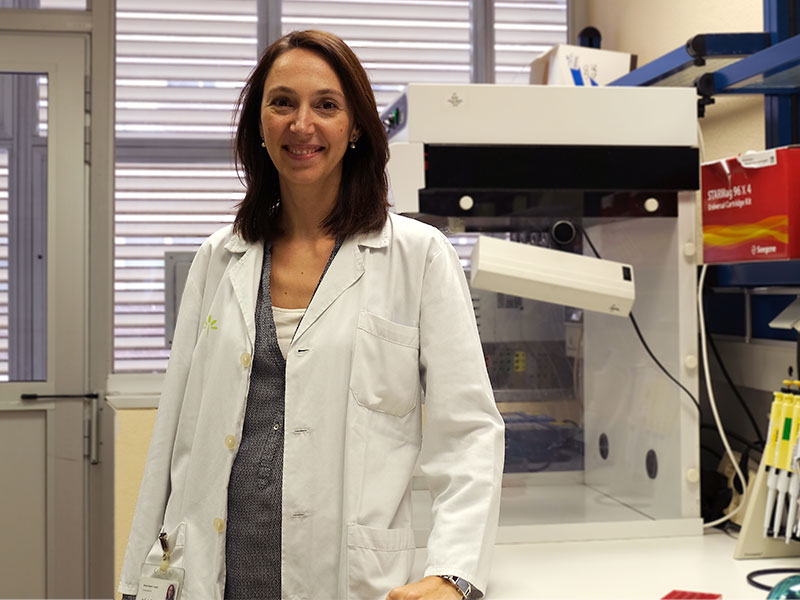Elisa Martró awarded a project for Micro-elimination of Hepatitis C by GILEAD

Elisa Martró, leader of the Clinical Virology and New Diagnostic Approaches Research Group at the Microbiology Service of the Germans Trias i Pujol Hospital, has been awarded with one of the five projects granted in the First Edition of the Gilead projects for Micro-elimination of Hepatitis C in Spain and evaluated by the Spanish Liver Research Association (AEEH). The project is entitled "Pilot hepatitis C micro-elimination strategy in Pakistani immigrants in Catalonia through the implementation of a community intervention", and she attended the 44th Annual Conference of the AEEH to receive her award.
Since 2015, Dr. Martró's Group has been working on the simplification of hepatitis C diagnosis by developing and validating an assay for the detection of HCV RNA from a few drops of dried blood, with the aim of improving access to hepatitis C diagnosis for vulnerable groups (such as male and trans sex workers, people who inject drugs, and now also immigrants). "This is very important in the light of the recently approved Plan for the Prevention and Control of Hepatitis C in Catalonia and the Strategic Spanish Plan (PEAHC), in agreement with the Global Health Strategy of the World Health Organization, which aims to eliminate hepatitis C as a public health problem by 2030," Explained Martró, who is a member for the commission that designed the Catalan Plan.
In this project, a community intervention based on HCV prevention, screening and linkage to care will be implemented and evaluated on Pakistani immigrants in Catalonia. "This type of project requires multidisciplinary teams," continues Martró. Dr. Martró's Group, in collaboration with the Centre for Epidemiological Studies of Sexually Transmitted Diseases and AIDS in Catalonia (CEEISCAT), along with the Community Public Health Team from the International Health Unit Drassanes-Vall d'Hebron, and the Hepatology Service from the Vall d'Hebron Hospital are uniting their efforts to diagnose and treat hepatitis C among the vulnerable group of immigrants, and they can count on the support of the Public Health Agency of Catalonia. "We have many professionals involved; from community agents actively recruiting participants and international health specialists promoting education and prevention, researchers at the IGTP carrying out the analyses of samples and studying viral isolates and hepatologists treating patients to epidemiologists who study the distribution of the disease through the population.”
All these elements are needed to eliminate viruses such as that of hepatitis C from individual patients, with a view to eliminating it from society as a whole, which of course is especially relevant for vulnerable groups. "By reaching hidden populations in the community, we will generate strategic epidemiological information to quantify the problem and better understand the hepatitis epidemics in our setting. Therefore, the results we obtain will be useful for making evidence-based decisions and policies".
